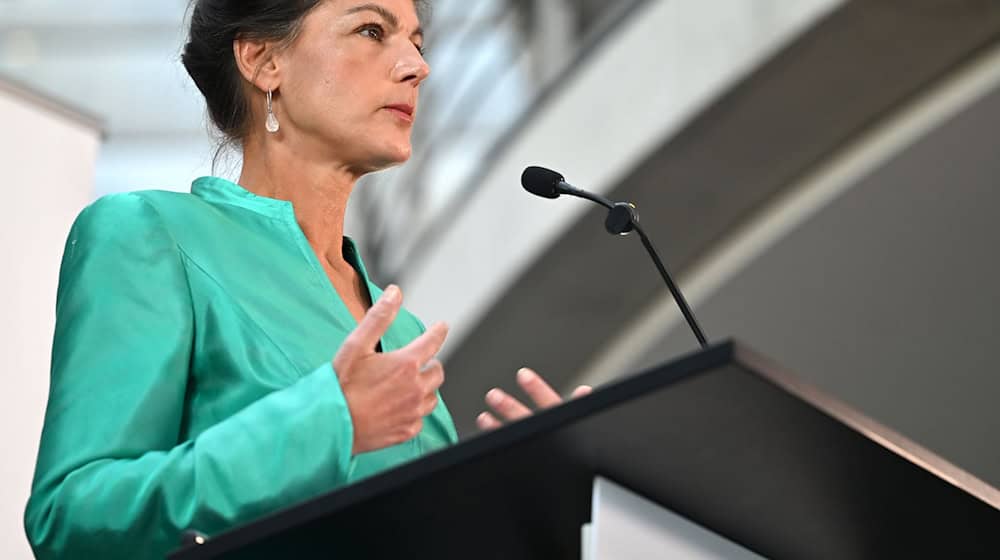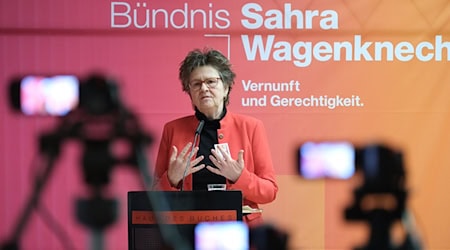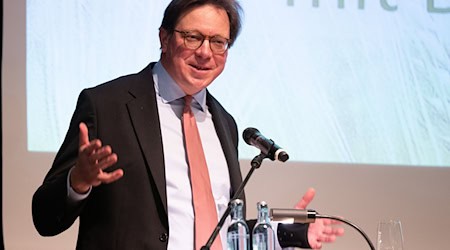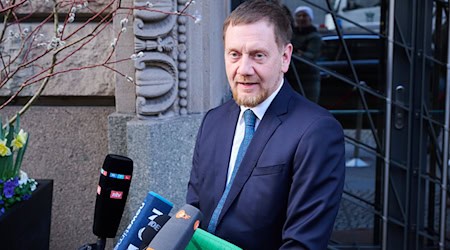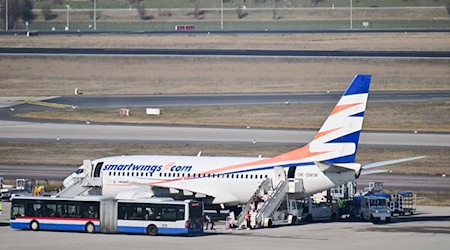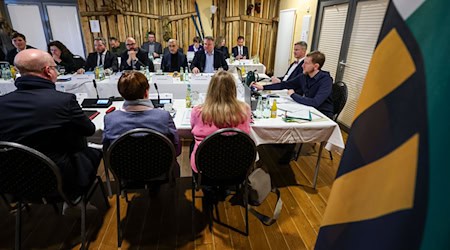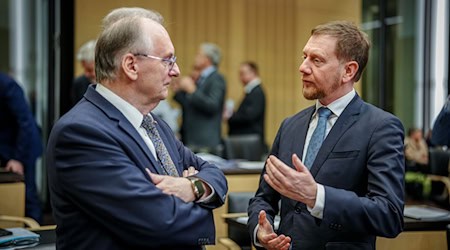The Leipzig-based political scientist Hendrik Träger attests that BSW founder Sahra Wagenknecht has a "centralized understanding of party work". By this, the political scientist means that the federal chairwoman exerts influence on the branches in the federal states. She would only grant the state associations a small degree of autonomy - as a kind of branch of the BSW in the states. The entire project is strongly tailored to Wagenknecht. "This is not usual in the German party landscape."
Träger was referring to the failure of the exploratory talks for a governing coalition between the CDU, the Sahra Wagenknecht Alliance (BSW) and the SPD in Saxony. The BSW declared the talks over on Wednesday, citing the parties' opposing views on the issue of war and peace as one of the reasons. For the BSW, sticking to a clear peace formula in the preamble of a coalition agreement was a question of credibility.
BSW wants to be perceived as principled
"I don't think that Sahra Wagenknecht wants her alliance to be perceived as incapable of forming a coalition, but as principled," Träger told the German Press Agency. "Classic red lines should not be crossed. In addition, Wagenknecht has a political style that is more geared towards fundamental opposition."
According to Träger, the BSW will benefit in a federal election campaign that has now been brought forward if not three state associations are part of a state government, but perhaps only one or two. "With three coalitions, the BSW would have had to manage a balancing act between a willingness to compromise at state level and fundamental opposition at federal level." Nevertheless, the expert believes that alliances will also work.
Expert: BSW more autonomous in Thuringia than in Saxony
"In Brandenburg, only two parties have to agree. A two-party coalition is always easier than a three-party alliance." In Thuringia, the impression was created that party leader Katja Wolf acted more autonomously than her Saxon counterpart Sabine Zimmermann. This may have something to do with the relationship between the people involved. "Ms. Wolf does not want Ms. Wagenknecht to explain to her one hundred percent what she has to do in Thuringia." That is why successful coalition negotiations are possible here.
Copyright 2024, dpa (www.dpa.de). All rights reserved

